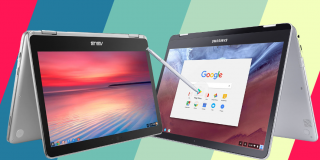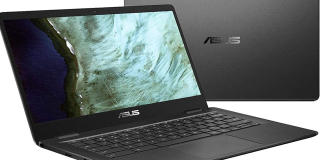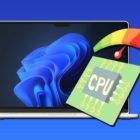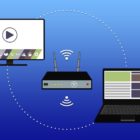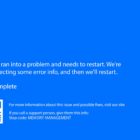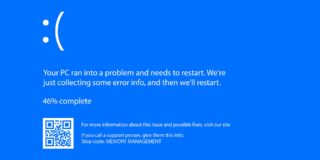How to Run QuickBooks on a Chromebook

QuickBooks is one of the most popular accounting software packages. As such, it is ideal for small businesses and people with limited accounting needs. It can perform multilingual invoicing, mileage tracking, project profitability calculations, etc. If you need a go-to solution for your small business accounting, QuickBooks will do the trick.
QuickBooks does come with a downside – it’s Windows-focused. That means that other users of platforms won’t get the full benefits of QuickBooks. The full potential of this accounting software package is apparent only on Windows. However, there are things that you can do to maximize your experience on other platforms.
Running QuickBooks on Non-Windows Platforms
If you want to run QuickBooks on a Chromebook, tablet, iPad, or Mac, you can do it, but there will be limitations.
For one, Chromebooks, iPads, and Tablets are no match for PC when it comes to hardware. You’d think that corresponding versions would exist for these platforms, but, unfortunately, they don’t. In this instance, QuickBooks Online is pretty much the only solution.
QuickBooks Online is a cloud-based app that allows you to host QuickBooks software and access it through a browser or the QuickBooks app. By hosting the QuickBooks software, not only do you allow your Chromebook, tablet, or iPad access to QuickBooks, but you get a portable QuickBooks workstation, available anywhere, as long as there’s an internet connection.
A Mac version of QuickBooks does exist, but it is the lesser version of the Windows app. You are probably better off using QuickBooks Online on your Mac as well, rather than opting for the dedicated version.
So, whether you want to use QuickBooks through your Chromebook, tablet, iPad, or Mac, QuickBooks Online is your best bet.
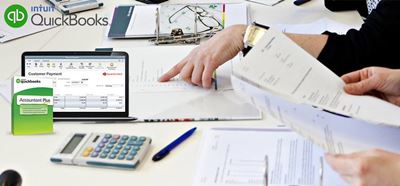
How to Use QuickBooks Online
The best solution here, QuickBooks online, isn’t a match for the Windows version, but it’s pretty much as far as you’ll get to the full QuickBooks experience, other than buying a PC and installing Windows on it. Fortunately, using QuickBooks Online is fairly straightforward.
Buy a License
First, you’re going to need to buy a license. QuickBooks is paid software, and you won’t be able to use it unless you’ve got it from a legitimate source. There are two legitimate ways to get your hands on the QuickBooks license – directly from QuickBooks or from a reseller. The former is a safer option. If you’ve got your QuickBooks through illegal means, your cloud provider will refuse to host your software.
Choose a Cloud Host
Next, you need to pick a cloud host. Of course, using a private dedicated server is always recommended, as these are as safe as they come. Why is safety important here? Well, after all, QuickBooks is accounting software, and you’ll probably have some very sensitive information lying around.
Your cloud provider of choice needs to meet your compliance standards. Your clients and your business will get their own space for data and shouldn’t be findable by other cloud users.
Get Your Files on There
As a rule of thumb, the cloud provider is the one that handles the upload of your files to the cloud. If your chosen provider doesn’t offer this, pick a different one – this is considered standard with most cloud providers. The cloud provider will upload your data and ensure that your environment is ready for use.
Learn How to Use It
Fortunately, you’re not alone here. Your cloud provider should teach you how to access your software. Of course, this depends on what device you’ll be using – Chromebook, iPad, tablet, or Mac. Once you’ve learned how to use it, you will be able to access your cloud-based QuickBooks environment, and so will your users.
That’s the beauty of using QuickBooks Online – as long as there’s an internet connection and as long as you have one of the supported devices, you’ll be able to access your software.
Using It from a Mobile Device
Where there’s a tablet app, there’s a mobile app, as well. QuickBooks is no exception to this rule. The mobile app is pretty much identical to the tablet version. Of course, you get reduced features and a different layout, but you also get Remote Access that allows you to control your PC from anywhere.
Yes, this is a pretty neat feature, but it can be difficult to manage and sluggish at times. That’s to be expected, however, as there is a lot of data exchanged during sessions.
Be careful when using Remote Access abroad, as it can eat away at your data plan. Again, there is a lot of data traffic going on here, so this feature is best used with a solid, fast Wi-Fi connection.

QuickBooks Online Saves the Day
It’s hopefully clear that using QuickBooks on Windows devices will give you the best possible experience. With the app version and QuickBooks Online, you get a basic version of the desktop app, although the app does feature the Remote Access feature.
Have you tried using QuickBooks on a non-Windows device? What was your experience? What do you find is lacking the most? Hit the comments section below and add your thoughts, questions, and tips.





